Sub-Saharan Africa (SSA)
Overview
Encompassing the area of the African continent below the Saharan Desert, and subsequently the vast majority of Africa’s landmass, this region is home to an astonishing amount of geographic diversity, ranging from deserts and savannas to tropical rainforests. Commonly divided into 4 sub regions, SSA is home to over a billion people, who comprise a vast multitude of ethnic, cultural and linguistic groups. Although the region is growing economically at an impressive rate, it still faces many development challenges. These include some of the world’s highest and most concentrated rates of poverty, gender inequalities, political instability and the ever-increasing threat of climate change.
Projects

- Partner(s): UNESCO (Funder)
Establishing a UNESCO Category 2 Centre is a vital step toward fostering international collaboration and advancing global development agendas. These Centres act as hubs to advance UNESCO’s goals of promoting peace and sustainable development across its key areas of competence—education, science, culture, and communication—in line with the SDGs.
Data-Pop Alliance (DPA), in partnership with UNESCO, conducted a feasibility study to evaluate the readiness and potential of a proposed institution in Nigeria to receive this prestigious designation. The study aimed to ensure the center would align with UNESCO’s global strategies and sectoral priorities while addressing the unique challenges and opportunities of the region. Our team examined the centre’s ability to contribute to international and regional goals, assessing its:
- Alignment with UNESCO’s Global Framework
- Operational and Financial Sustainability
- Excellence and Impact
- Collaborative Potential
DPA’s study delivered actionable recommendations which highlighted opportunities for innovation, cross-border collaboration, and sustainable development.
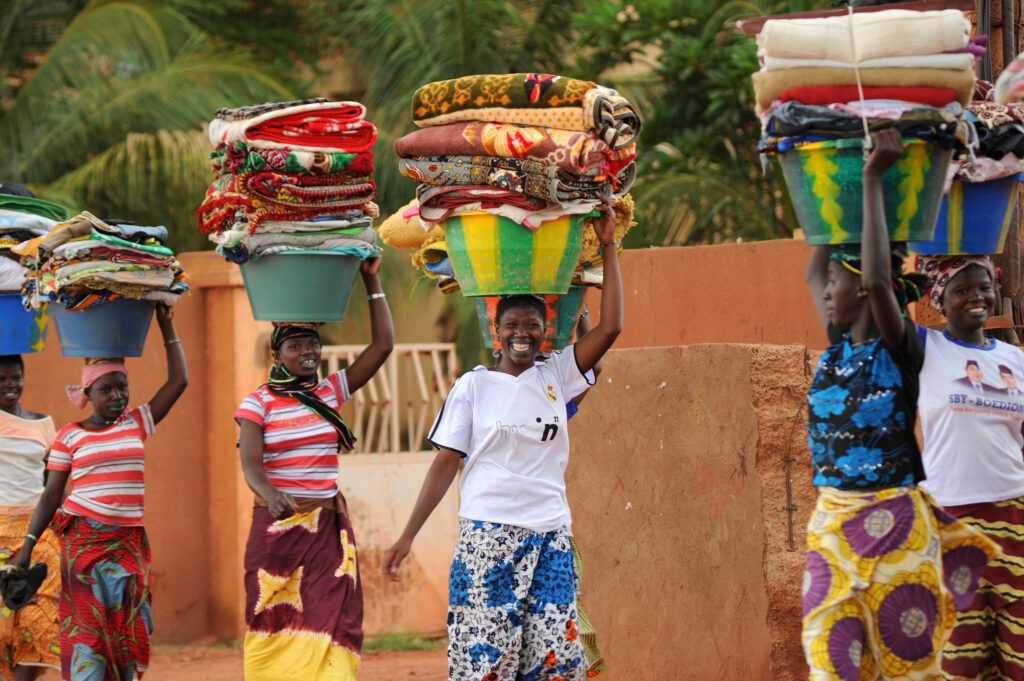
- Mali, Sub-Saharan Africa (SSA)
- December 2024 - April 2025
- Data Feminism
- Partner(s): UN Women - Mali (Funder)
DPA, with funding from UN Women – Mali, conducted a comprehensive analysis of the situation of women and men in Mali, identifying key challenges faced by women and girls in realizing their economic, social, and political rights. The analysis combined documentary reviews with analyses of qualitative and quantitative secondary data to develop tools and frameworks for planning gender-sensitive policies, programs, and strategies. It assessed the institutional environment, the implementation of gender equality commitments, within the context of the security crisis and institutional changes.

- Partner(s): UNFPA (Funder), University of Melbourne

- Partner(s): Bureau Opérationnel du Suivi (BOS) within the Presidency of Senegal, Orange-Sonatel, WFP Innovation Accelerator (Funder)
After being selected to participate in WFP Humanitarian Innovation Accelerator Programme (HIAP), DPA has developed a project aimed at improving anticipatory action and response to climate-induced disasters in Senegal using OPAL for Humanitarian Action (OPAL4HA) by:
- Integrating diverse data sources such as call detail records (CDRs), earth observation (EO) data, qualitative data (surveys and interviews), official statistics, and user data to provide a holistic view of the crisis;
- Developing and testing the data model focusing on predictive analytics and pre-processed indicators of human displacement induced by climate shocks;
- Creation of a user-friendly query interface powered by Generative AI for timely insights;
- Automatic report generation to swiftly share progress with stakeholders; and
- Continuous refinement based on community feedback and targeted outreach to affected communities.
The project was presented at the United Nations STI Forum in May 2024 in New York, alongside other initiatives supported by HIAP. More details about the event can be accessed here.

- Partner(s): City Hub and Network for Gender Equity - CHANGE (Funder), Open Data Watch
Data-Pop Alliance (DPA), in collaboration with Open Data Watch (ODW), was tasked with creating a pioneering gender data framework for urban environments, commissioned by the City Hub and Network for Gender Equity (CHANGE). This framework was intended for implementation across CHANGE’s network cities, starting with Barcelona, Buenos Aires, Mexico City, Nairobi, and Quezon City as the initial participants. Capitalizing on DPA’s and ODW’s specialized knowledge in data analytics and gender-focused research, the project’s core objective was to provide a robust measurement of gender equity within varied city landscapes. The project’s deliverables included: A comprehensive blueprint outlining the essential requirements and stages for cities to prepare and deploy the framework; The framework itself, featuring specific dimensions and indicators that assessed both the processes and physical form of the cities concerning gender equity; and a specialized data collection tool, complete with training materials, to enable cities to gather and process all necessary data to effectively utilize the framework. This multi-faceted approach ensured that the participating cities were equipped with the knowledge, tools, and methods required to drive meaningful progress in the realm of urban gender equity.
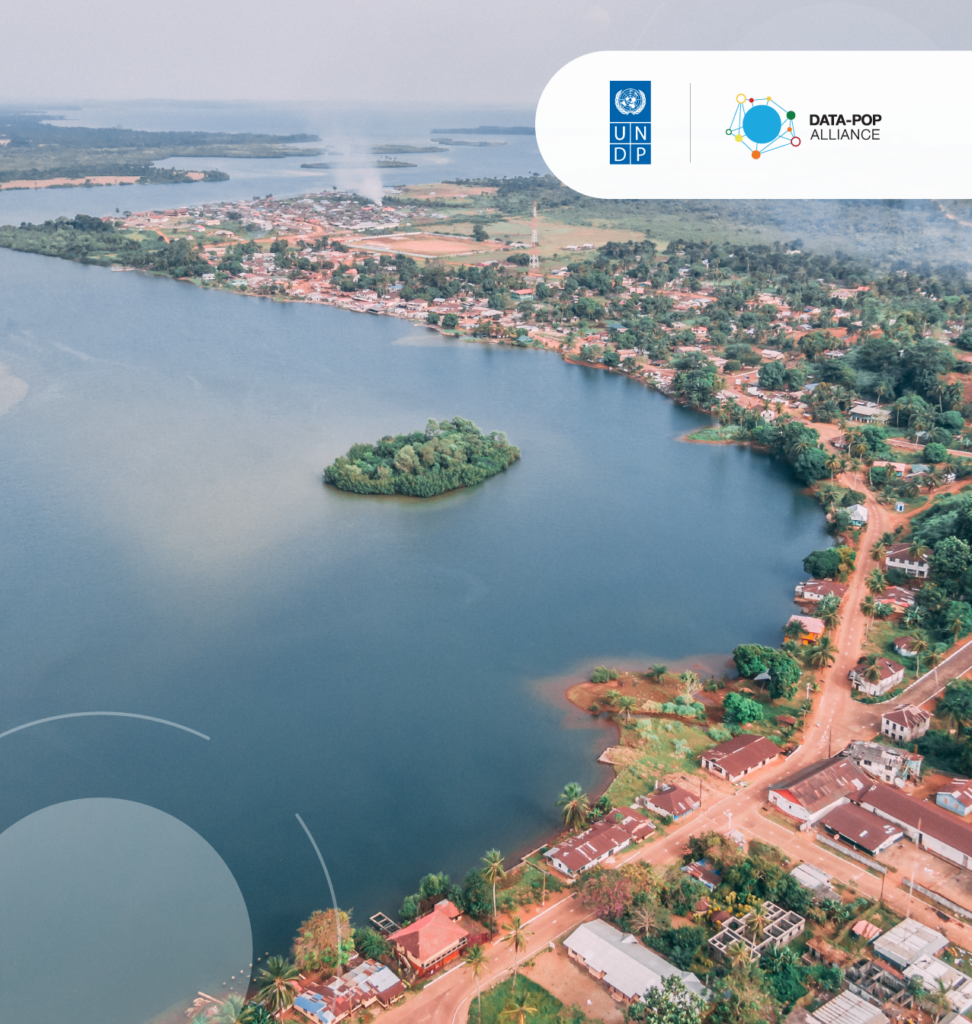
- Partner(s): UNDP Liberia (Funder)
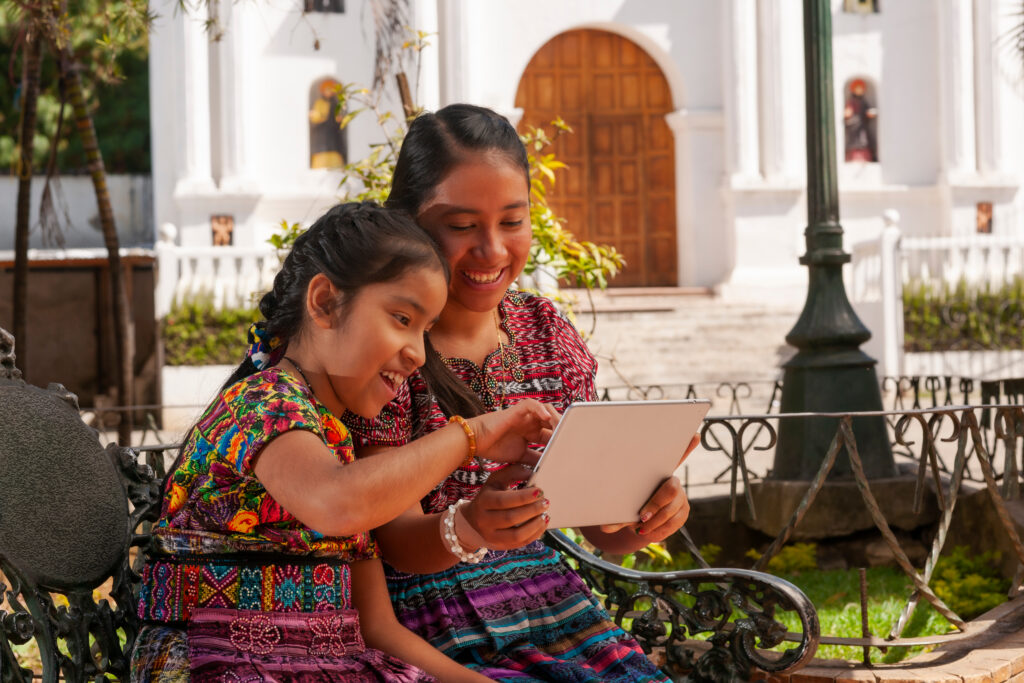
- Partner(s): Fòs Feminista (Funder)
In partnership with Fòs Feminista, Data-Pop Alliance conducted a nine-month project aimed at strengthening understanding of how youth-friendly approaches are being applied in digital sexual and reproductive health (SRH) interventions across Latin America, Africa, and Southeast Asia. Through a combination of a systematic literature review, five case studies, and a self-assessment survey for Fòs Feminista’s network partners, the project identified key strategies, challenges, and best practices for reaching youth and adolescents through digital technologies such as apps, chatbots, and web platforms.
By critically analyzing existing digital health interventions (DHIs) and their methods for engaging young populations, the project produced actionable recommendations to enhance future initiatives. Special attention was given to assessing digital maturity, integrating intersectional perspectives, and fostering youth-friendly environments to ensure that digital SRH services are inclusive, accessible, and impactful for young users.
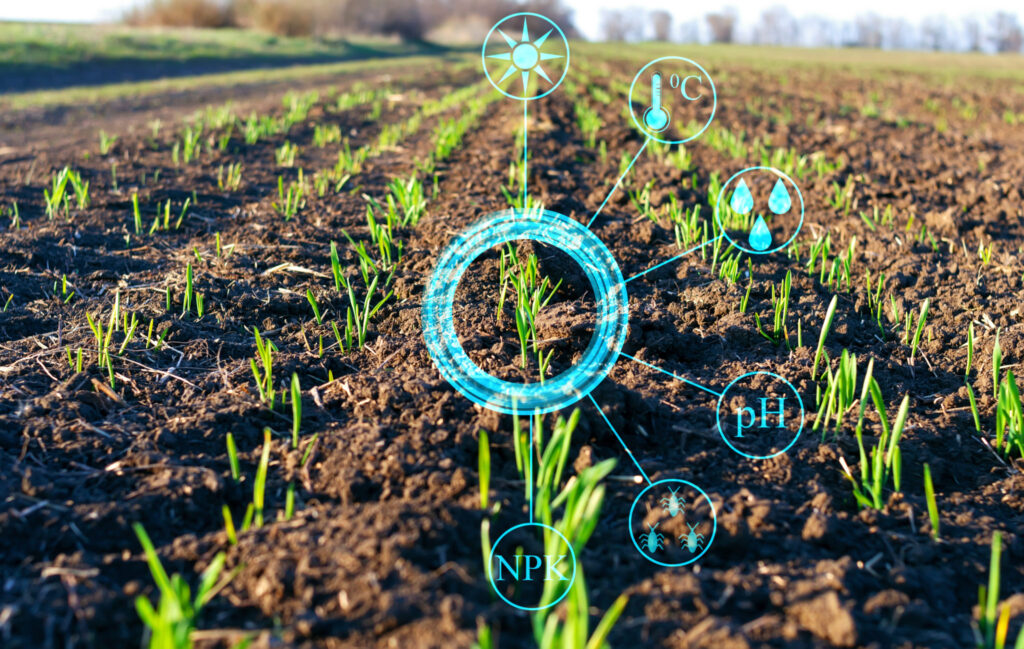
- Partner(s): Belmont Forum (Funder), IDEMA, Initiative Prospective Agricole et Rurale (IPAR), Malmö University (MAU), Paris-Lodron-University Salzburg (PLUS), The Institute for Quantitative Social Science (IQSS) at Harvard University, Vrije Universiteit
Climate change (interlinked with humanitarian crises and other economic and health factors) could have led to internal resettlements, international migration, and other (new) forms of human mobility. However, the empirical link between various climatic conditions and migration outcomes was highly contested, and, to date, no unified theoretical approach had adequately captured the complexity and contextual dependency of climate-induced migration. To address this gap, CLIMB sought to develop a holistic approach which would allow a better understanding of the mechanisms and pathways underlying the climate-migration nexus, and to predict temporal-spatial mobility patterns in Africa and beyond. Specifically, we investigated how climate change might intersect with conflicts, poverty, and epidemics, among other adversities, and how these forces might operate in tandem in driving human migration, with a special focus on Africa.
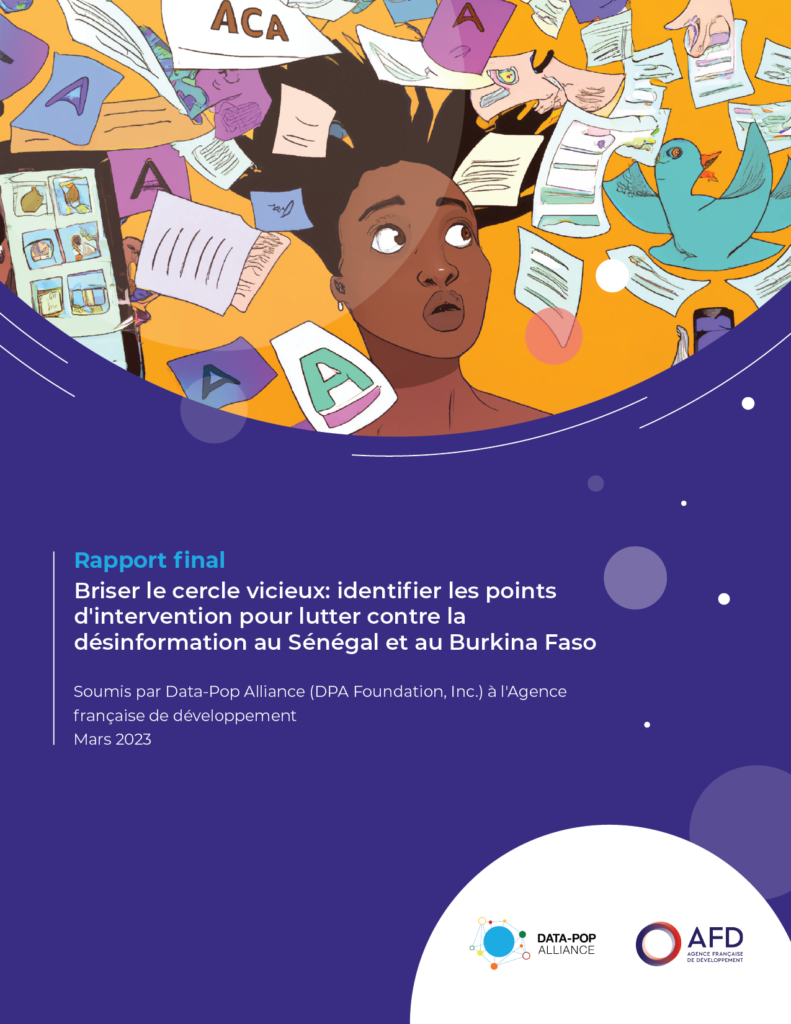
- Partner(s): Agence Française de Développement - AFD (Funder)
DPA developed a comprehensive ecosystem approach to address the multifaceted nature of disinformation in two West African countries. Recognizing the need to examine disinformation beyond social media, our methodology considered the interconnected networks of online influencers, traditional media, and groups weaponizing (dis)information for socio-political purposes. We also investigated the underlying economic, political, and social motivations driving the weaponization of disinformation by powerful groups or individuals, and allowing false or inaccurate narratives to be anchored in society. This approach enabled pinpointing the most effective intervention points within the (dis)information cycle in Senegal and Burkina Faso, providing valuable insights and recommendations, particularly concerning the role of bilateral aid agencies such as AFD.
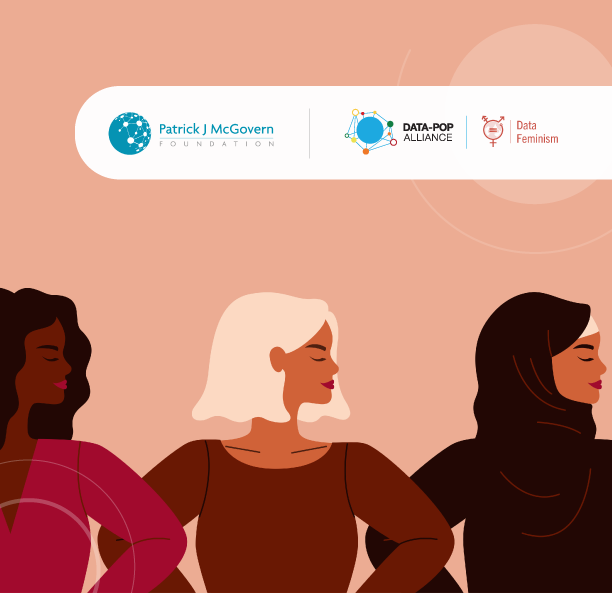
- Partner(s): Patrick J. McGovern Foundation (Funder)
The Patrick J. McGovern Foundation (PJMF) awarded DPA’s Data Feminism Program a twelve-month, $300,000 grant to support our work advancing intersectional, data-driven research, training and advocacy to continue fostering gender equality across Latin America and the Caribbean, the MENA region and Sub-Saharan Africa. In 2023, the grant was renewed for $400,000 to continue supporting existing and new Data Feminism Initiatives, including the Book and Movie Club, “Technology Through Feminist Lenses.”

- Partner(s): Government of Guinea Ecuatorial, UN System Equatorial Guinea, UNDP Equatorial Guinea (Funder)
DPA provided comprehensive support to Equatorial Guinea in developing their Second Voluntary National Review (VNR). Over a six-week sprint, DPA undertook multiple tasks including reviewing and adding information, conducting research, and creating presentations, to support the finalization of the VNR. Key contributions by DPA included:
(1) Document review and improvement through revision and suggestion of improvements for how the country presented its public policies and programs related to the SDGs;
(2) Budget alignment assessment and innovative use of LLMs, by conducting the first assessment of the alignment between the SDGs and the national budget. The team used large language models (LLMs) for budget classification of the SDGs, demonstrating that such technology can facilitate complex and systematic assessments;
(3) Presentation and preparation of content used by the Minister of Planning at the High-Level Political Forum (HLPF) in New York City;
(4) Data compilation and analysis of information related to more than 36 SDG indicators; and
(5) Design of the entire VNR document.
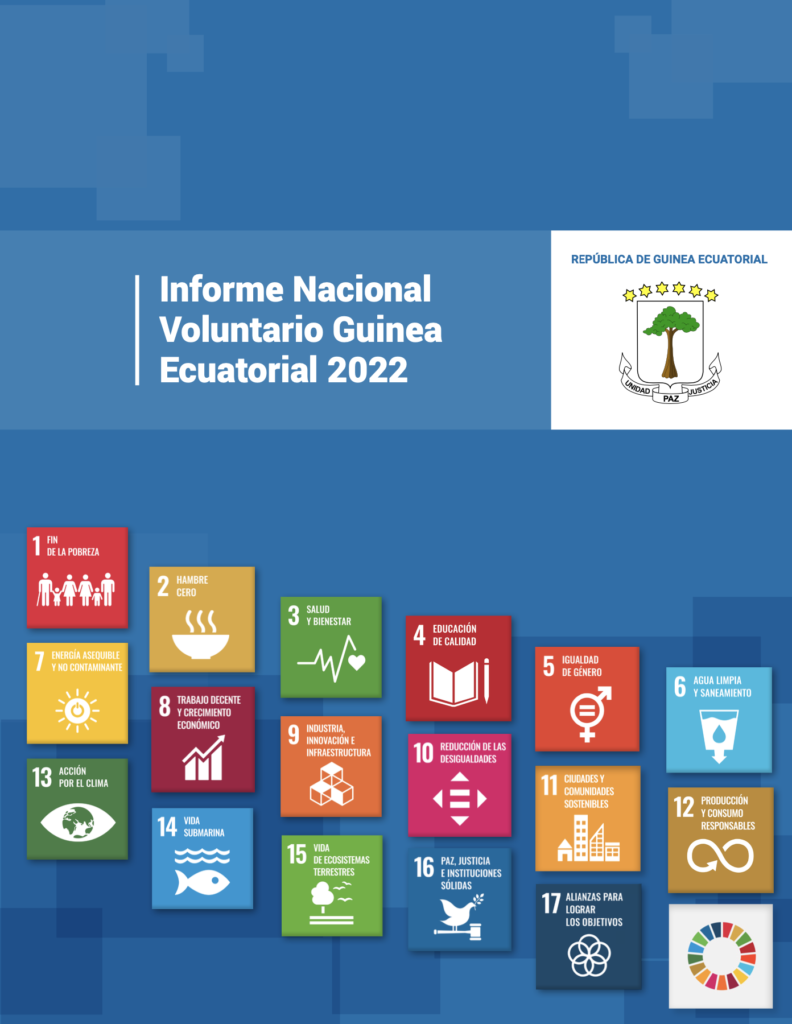
- Partner(s): Government of Guinea Ecuatorial, UN System Equatorial Guinea, UNDP Equatorial Guinea (Funder)
Equatorial Guinea adopted the 2030 Agenda for Sustainable Development Goals (SDGs) with the aim of eradicating poverty, protecting the planet and enabling all people to live in peace and prosperity. Undertaken in partnership with the Government of Equatorial Guinea and UNDP Equatorial Guinea, the work contained in this report presents the progress made towards the Agenda 2030 and how to mobilize the resources necessary for its implementation through partnerships and inclusive planning. Based on this commitment, DPA contributed to the first VNR in the country in order to present a self-assessment on progress related to achievement of the SDGs.
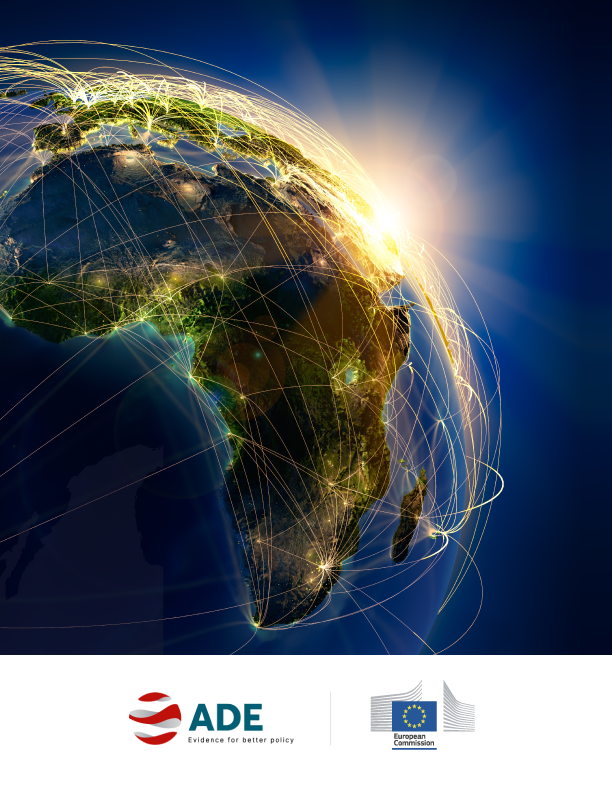
- Partner(s): ADE (Funder), EU DEVCO
This study, produced in collaboration with ADE, assessed the European Union’s external cooperation for development (DEVCO, now INTPA) in the cross-cutting field of digitalization in Sub-Saharan Africa (SSA), with a view to issuing a series of lessons learned and recommendations to inform current and future cooperation work. In particular, this evaluation focuses on understanding and analyzing DEVCO’s investments and projects in the region, the extent to which these projects are strategically promoting the pillars, objectives and values of the EU frameworks, and to identify complementarities or lack thereof with other relevant national, regional, and international stakeholders.
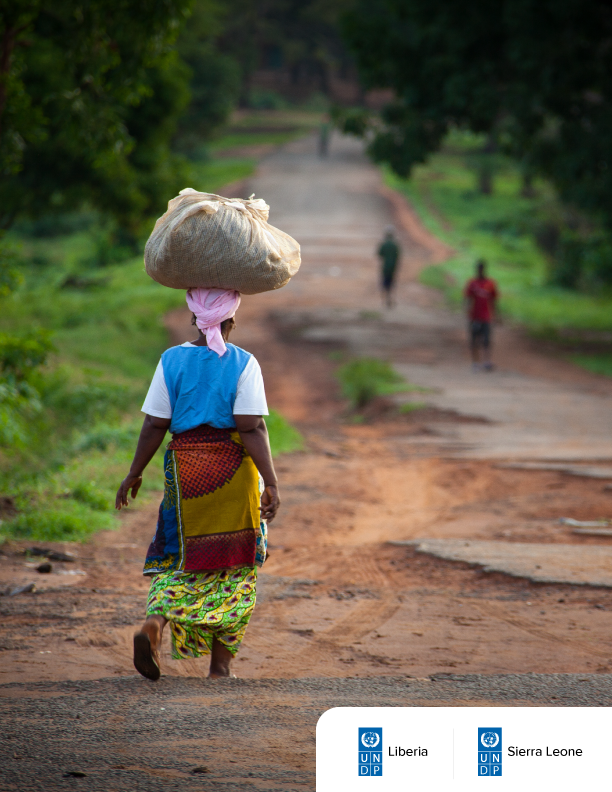
- Partner(s): UNDP Liberia (Funder), UNDP Sierra Leone (Funder)
This study, supported by the UNDP’s Country Offices in Liberia and Sierra Leone, developed a deep understanding of the existing informal social protection mechanisms and community development needs in the borderlands of Sierra Leone and Liberia. DPA adopted an inductive ethnographic approach consisting of qualitative methods complemented with quantitative data collection to identify borderland community needs and trends, covariate shocks faced and coping mechanisms, as well as the inclusion and exclusion factors. The outputs and findings of the study informed government and UNDP programmatic interventions aimed at strengthening the resilience of these communities.
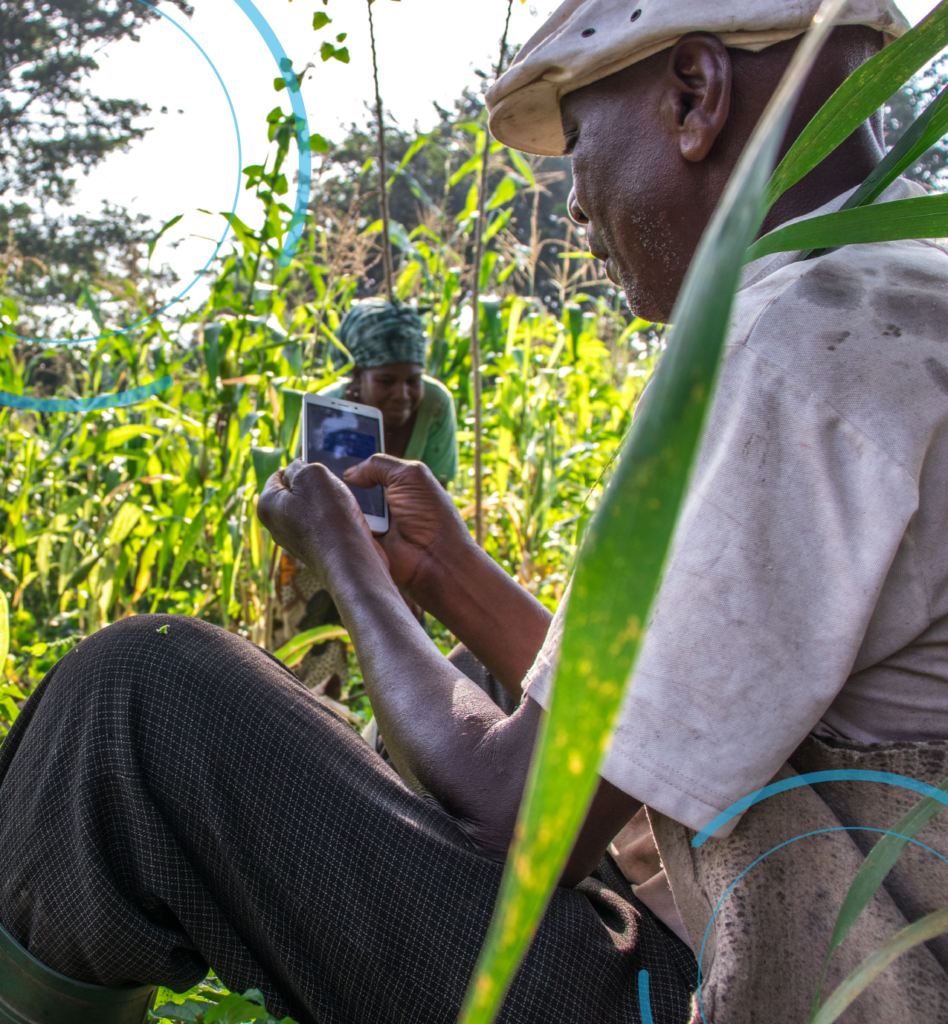
- Partner(s): UNDP Togo (Funder)
Data-Pop Alliance (DPA) provided technical assistance to the United Nations Development Programme (UNDP) Togo Country Office (CO) to support its efforts to leverage open and Big Data for the country’s development, including SDG monitoring and promotion. The proposed consultancy aimed to advance the state of knowledge, know-how, awareness, and capacities to harness the potential of Open Data and Big Data in Togo. The project was expected to contribute to the recognition of the importance of data, ensuring that access and analysis of personal data did not infringe on people’s privacy, safety, and agency.
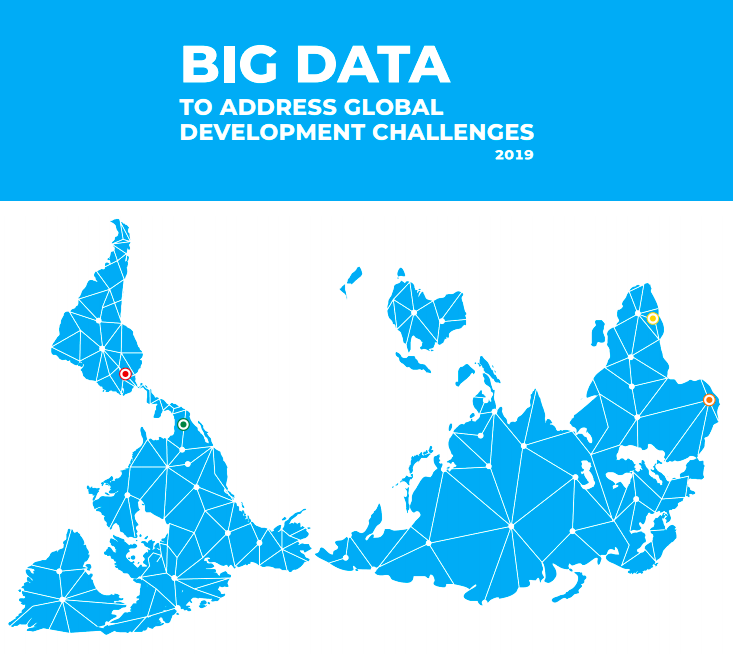
- Partner(s): Agence Française de Développement - AFD (Funder), Cloud to Street, Flowminder, Harvard Humanitarian Initiative, MIT Media Lab, Overseas Development Institute
Four research papers were developed in collaboration with and funded by the Agence Française de Développement (AFD) between 2016 and 2019 under a joint program with Data-Pop Alliance and research partners (Cloud to Street, Flowminder, Harvard Humanitarian Initiative, MIT Media Lab, Overseas Development Institute) titled “Strengthening the evidence-base for leveraging Big Data to address global development challenges”. This research program and papers were designed with the following objectives and criteria in mind: to focus on various development challenges in different local contexts to ensure relevance; to work with trusted partners to ensure academic quality; and to both reflect and promote key determinants of sustainable development, including smoother, fairer, and safer access to data and stronger links between analysts, local decision-makers, and communities. Individually, these papers outlined specific cases and examples of how computational analysis of behavioral data (combined with other datasets) can paint a finer-grained, more complex, and dynamic picture of human reality than ‘traditional’ data allows. Collectively, they sketched the contours of a world where public decisions, in the form of policies and programs, might someday be designed, implemented, and evaluated using the best available data and approaches.
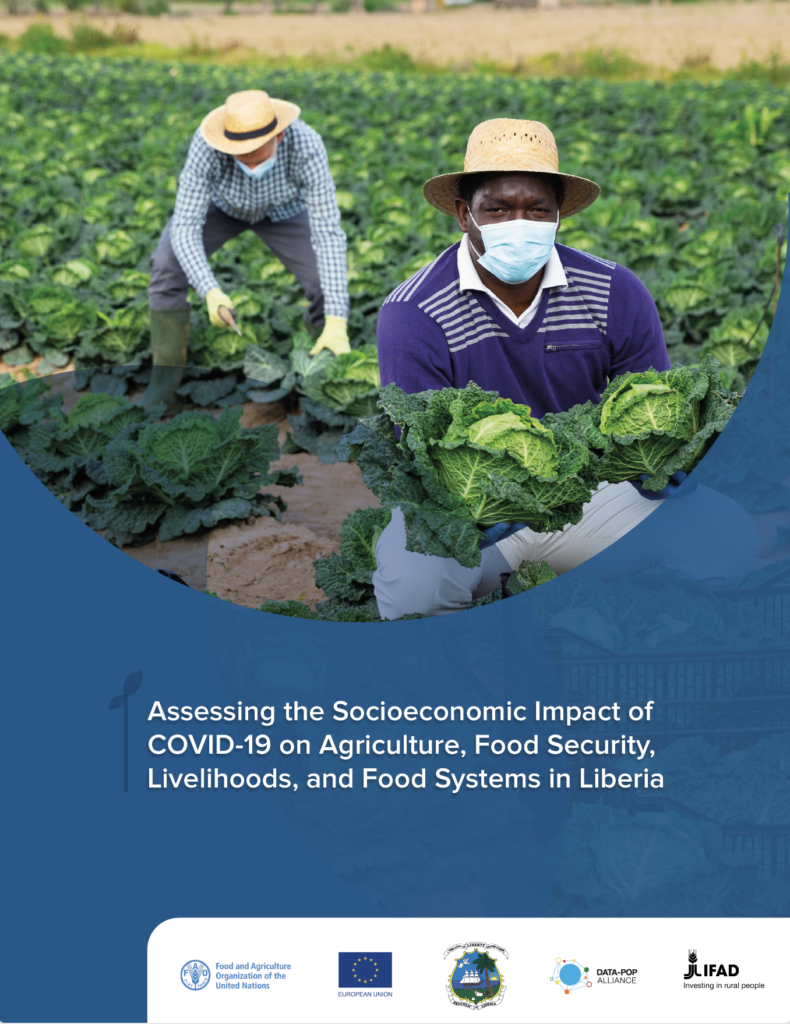
- Partner(s): European Union (Funder), FAO in Liberia (Funder), Food and Agriculture Organization of the United Nations - “FAO” (Funder), Government of Liberia
With the support of the Food and Agriculture Organization of the United Nations (FAO) Liberia and the European Union, and in collaboration with the Government of Liberia, DPA assessed the socioeconomic impact of COVID-19 on agriculture, food security, livelihoods, and food systems in the country. The report combined key insights from the literature with primary and secondary data source analysis (including the use of microsimulations, multiple regression analysis, and key informant interviews). DPA designed a specific methodological framework to analyze the COVID-19 impacts from a holistic perspective.
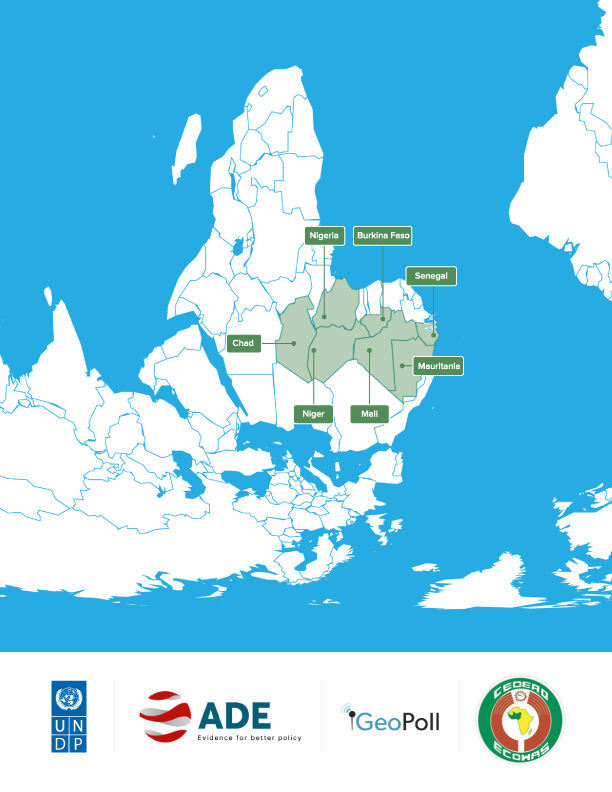
- Partner(s): ADE (Funder), Economic Community of West African States (ECOWAS), GeoPoll, UNDP Regional Hub for West and Central Africa (Funder)
In partnership with the UNDP Regional Office and the Economic Community of West African States (ECOWAS), DPA and ADE conducted assessments of the socioeconomic impacts of COVID-19 and the role of disaster risk governance (DRG) in seven countries of the Western Sahel and Lake Chad Basin (Burkina Faso, Chad, Niger, Nigeria, Mali, Mauritania, and Senegal). The study analyzed the impacts of the pandemic on macroeconomic health, human development, political governance, peace, and social cohesion, as well as the role of DRG institutions at the regional and national levels. The assessment utilized mixed methods with qualitative and quantitative data collection to produce seven country-level analyses, a regional comparative study, and a policy brief.
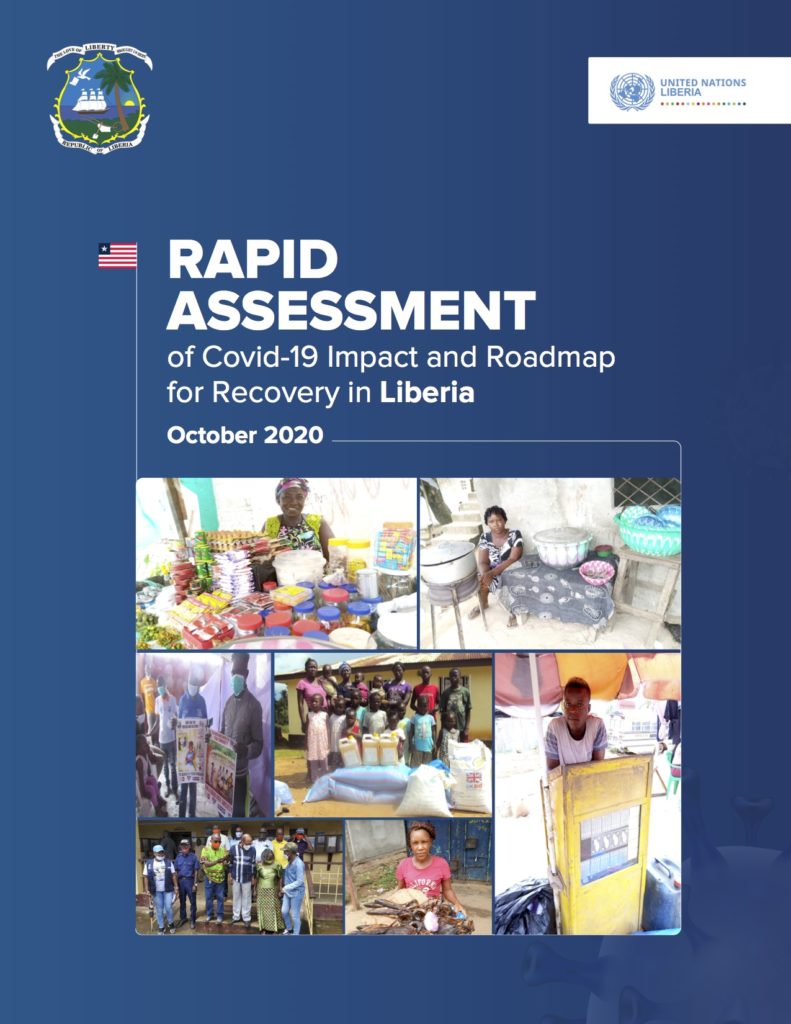
- Partner(s): ADE (Funder), UNDP Liberia (Funder)
In partnership with the United Nations Development Programme (UNDP) and ADE, the objective of this project was to conduct a rapid assessment of the socioeconomic impacts of the COVID-19 pandemic (and its mitigation measures) in Liberia. The study was produced as part of a project analyzing the implications of COVID-19 on pre-existing macro and micro-economic, human development, and governance vulnerabilities. Based on the findings of the rapid assessment and in partnership with the UN Country Team in Liberia, a set of recommendations was developed to chart the roadmap for the short and long-term recovery process to build back better, leaving no one behind. This rapid assessment study aimed to provide the necessary evidence and inputs to inform and guide the relevant COVID-19 interventions and response efforts of the UN agencies, the Government, and other development partners.
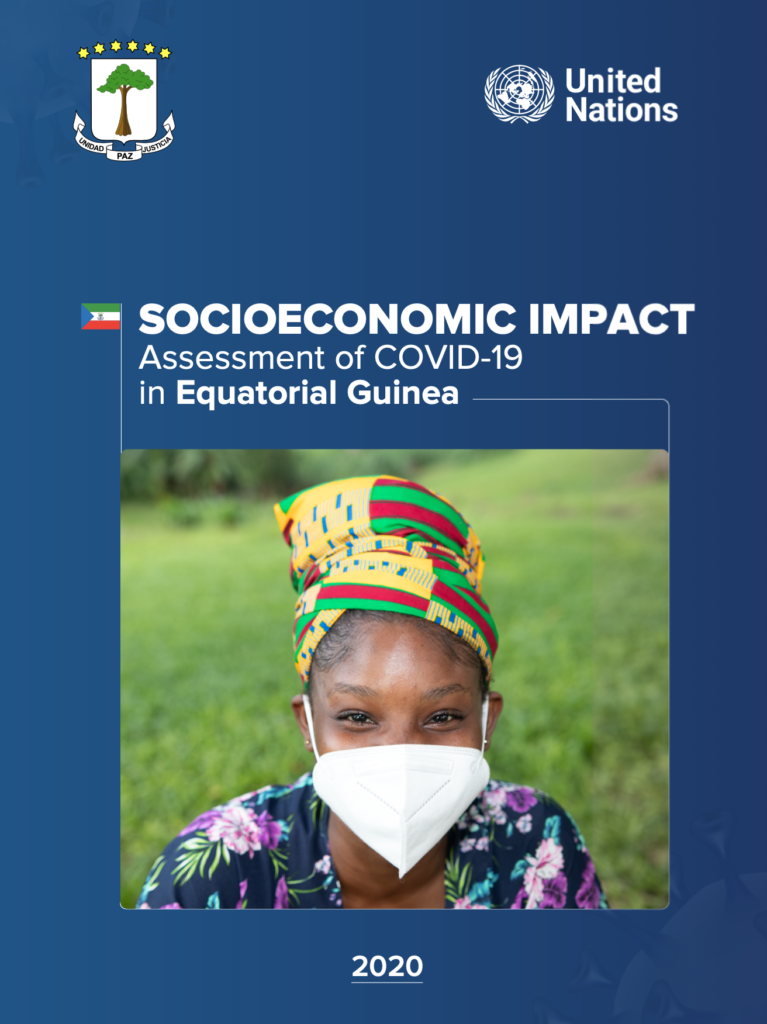
- Partner(s): ADE (Funder), UNDP Equatorial Guinea (Funder)
In partnership with the United Nations Development Program (UNDP), ADE, and following the formal request of the Ministry of Foreign Affairs, this project aimed to evaluate the initial effects of the COVID-19 pandemic on the country. Through rapid macroeconomic and fiscal analysis, sectoral analysis (agriculture, tourism, ICT, education, and health), and analysis of socioeconomic vulnerability and expected impacts of the crisis on the Sustainable Development Goals (SDGs), DPA produced a report with key recommendations to help the country recover and reduce vulnerability (applicable to subregions). DPA’s work focused on understanding the effects of COVID-19 and coordinating a response based on five pillars:
(1) Putting health first;
(2) Protecting people through social protection and basic services;
3) Promoting social cohesion and community resilience;
4) Supporting the macroeconomic response, and
5) Fostering multilateral collaboration.
All of this was done with the objective of advancing towards the SDGs, with the premise of leaving no one behind.
